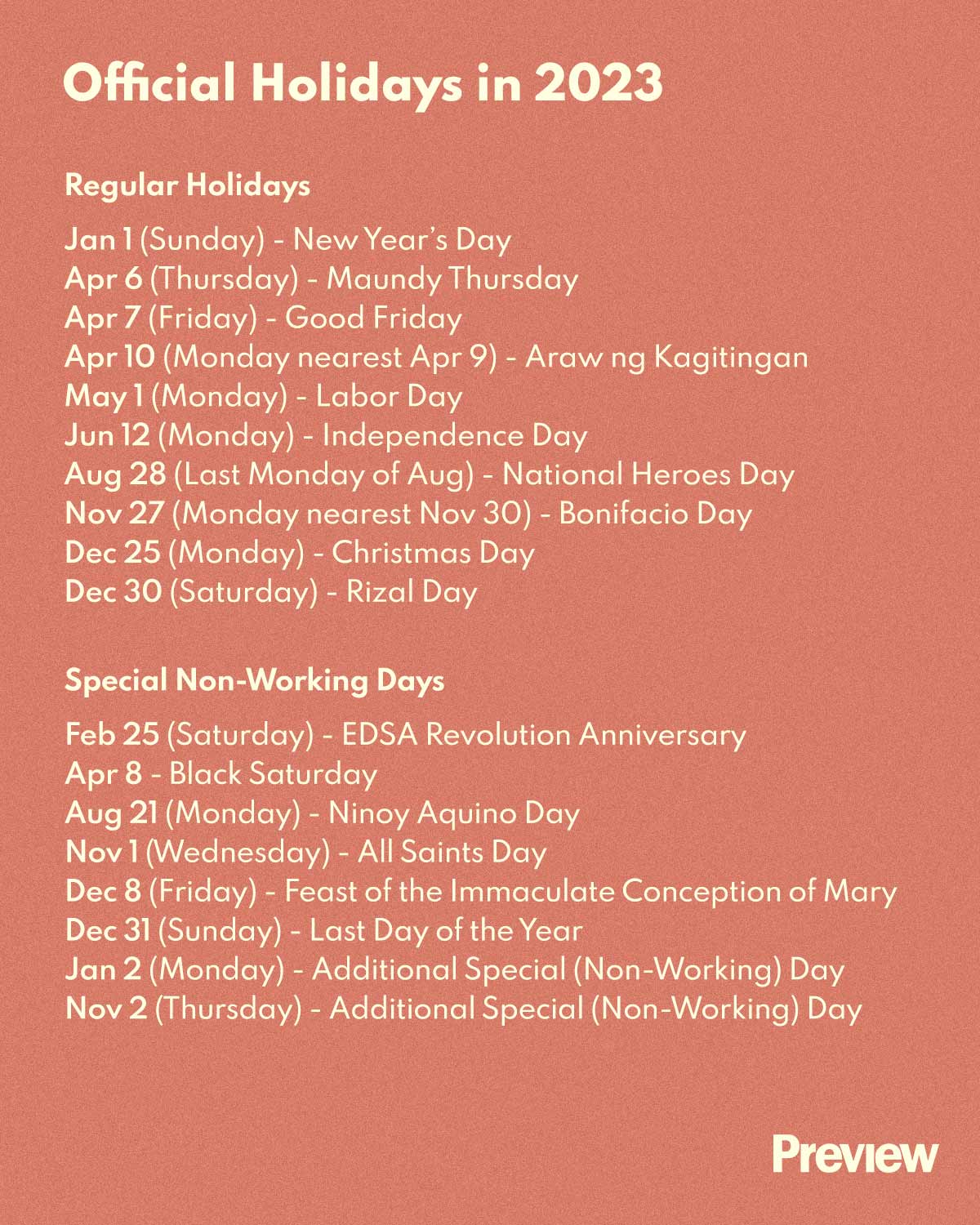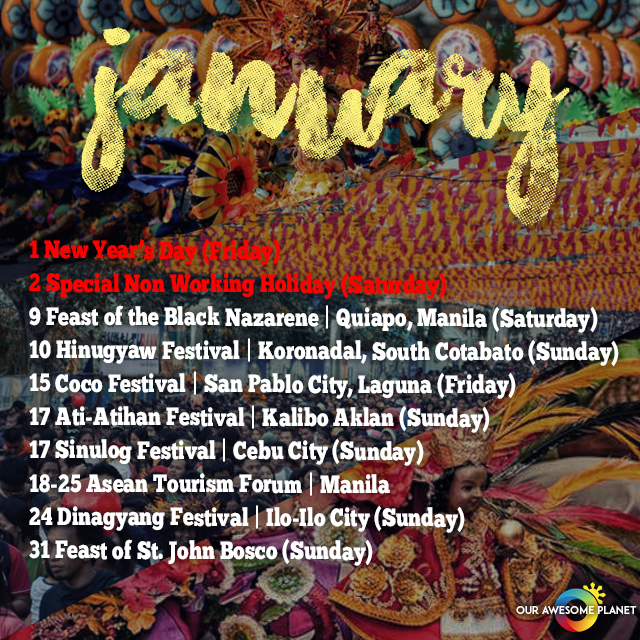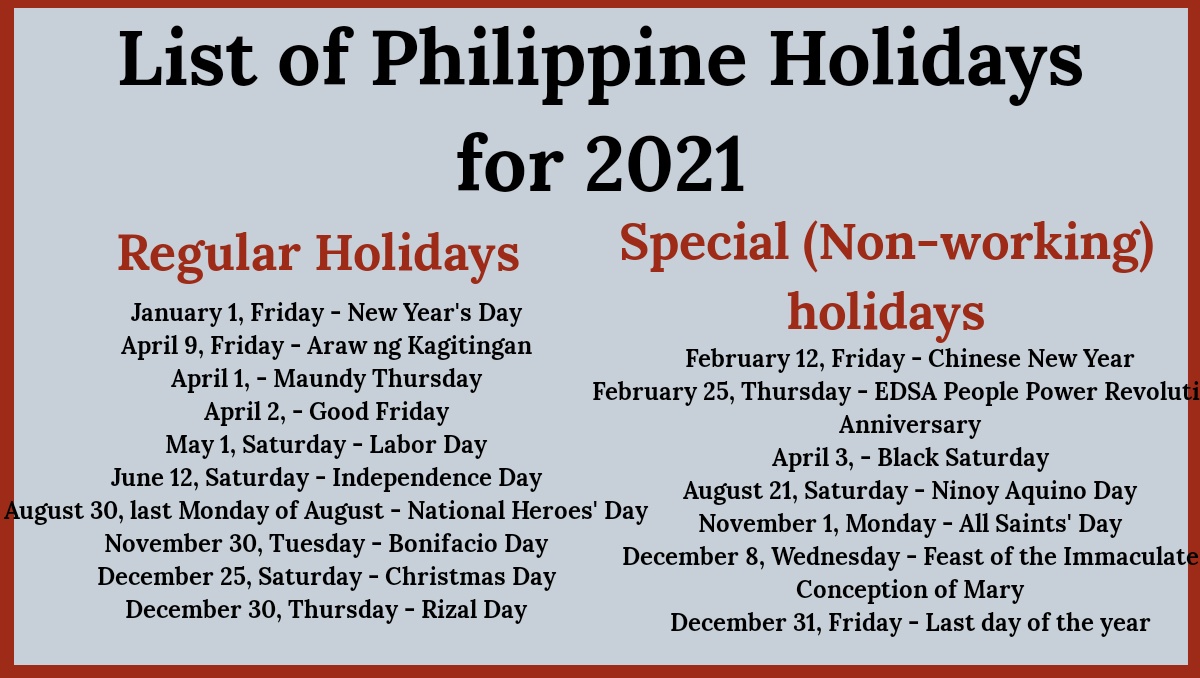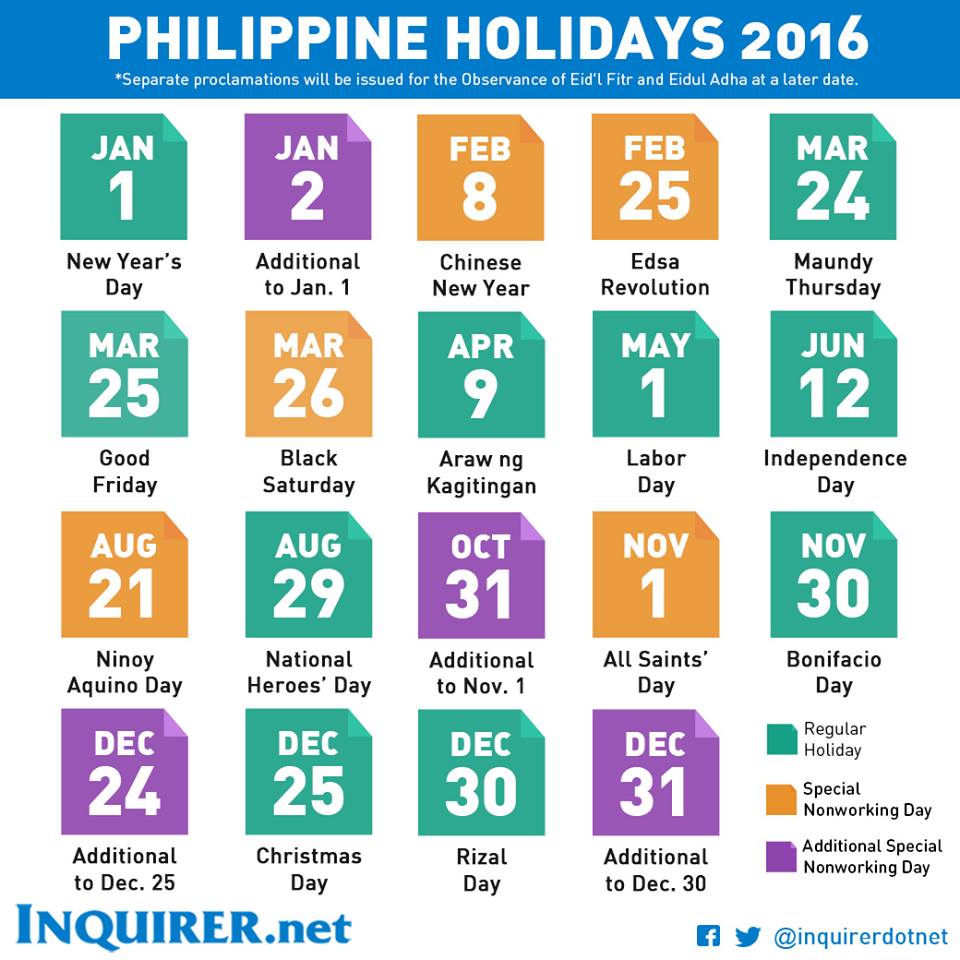A Comprehensive Look At The January 2nd Holiday In The Philippines: A Time For Reflection And Renewal
A Comprehensive Look at the January 2nd Holiday in the Philippines: A Time for Reflection and Renewal
Related Articles: A Comprehensive Look at the January 2nd Holiday in the Philippines: A Time for Reflection and Renewal
Introduction
With great pleasure, we will explore the intriguing topic related to A Comprehensive Look at the January 2nd Holiday in the Philippines: A Time for Reflection and Renewal. Let’s weave interesting information and offer fresh perspectives to the readers.
Table of Content
A Comprehensive Look at the January 2nd Holiday in the Philippines: A Time for Reflection and Renewal

The Philippines, a nation known for its vibrant culture and rich history, observes numerous holidays throughout the year. Among these, January 2nd holds a unique significance as a day dedicated to the celebration of the New Year. While not a traditional public holiday, it offers Filipinos a chance to extend the festive spirit of the New Year and engage in activities that promote reflection, renewal, and strengthening of familial bonds.
This article delves into the significance of this day, exploring its historical roots, cultural practices, and the various ways Filipinos celebrate the continuation of the New Year.
Historical Roots and Significance:
The origins of the January 2nd celebration can be traced back to the Spanish colonial period. During this time, the Philippines adopted the Gregorian calendar, marking January 1st as the start of the New Year. However, due to the deep-rooted traditions of the Filipino people, the festive atmosphere of the New Year celebrations often extended beyond a single day.
The tradition of celebrating New Year’s Day, known locally as "Bagong Taon," involved various customs and rituals aimed at ensuring good fortune and prosperity for the year ahead. These included setting off fireworks, wearing new clothes, and sharing special meals with loved ones. The festivities often continued into the following day, allowing for a more gradual transition back to normalcy after the excitement of New Year’s Eve.
Cultural Practices and Observances:
While the official New Year’s Day celebrations typically culminate on January 1st, many Filipinos choose to extend the festive spirit into January 2nd. This day provides an opportunity for families and friends to continue the merriment, engage in leisurely activities, and reflect on the past year while looking forward to the future.
Common activities observed on January 2nd include:
- Family Gatherings: Many families continue their New Year’s Eve gatherings, enjoying meals together, engaging in games, and sharing stories.
- Relaxation and Rejuvenation: After the excitement of New Year’s Eve, January 2nd provides a chance to unwind and recharge. Many Filipinos choose to spend the day resting, catching up on sleep, or simply enjoying a quiet day at home.
- Travel and Exploration: For those seeking a change of scenery, January 2nd offers an opportunity to embark on short trips to nearby destinations, exploring local attractions or visiting family and friends in other parts of the country.
- Religious Observances: Some Filipinos use this day for reflection and prayer, attending church services or engaging in personal devotions.
Importance and Benefits:
The celebration of January 2nd in the Philippines offers several benefits, fostering a sense of community, promoting family bonding, and encouraging a spirit of renewal.
- Strengthening Family Bonds: The extended celebrations provide an opportunity for families to spend quality time together, strengthening their relationships and creating lasting memories.
- Cultural Continuity: The tradition of extending the New Year celebrations serves as a reminder of the rich cultural heritage of the Filipino people and helps preserve these traditions for future generations.
- Reflection and Renewal: The day offers a chance to reflect on the past year, acknowledge successes, and identify areas for improvement, setting a positive tone for the year ahead.
- Encouraging Leisure and Relaxation: The festive atmosphere of the New Year celebrations can often be quite intense. January 2nd provides a much-needed opportunity to unwind, relax, and recharge before returning to the regular routine.
FAQs:
Q: Is January 2nd a public holiday in the Philippines?
A: No, January 2nd is not a public holiday in the Philippines. However, it is a day that many Filipinos choose to observe as a continuation of the New Year celebrations.
Q: What are some traditional activities associated with January 2nd celebrations?
A: Common activities include family gatherings, leisurely activities, travel, and religious observances.
Q: How does the celebration of January 2nd contribute to Filipino culture?
A: It strengthens family bonds, preserves cultural traditions, and fosters a spirit of reflection and renewal.
Tips for Celebrating January 2nd:
- Plan a Family Gathering: Organize a casual get-together with family and friends, enjoying a shared meal, playing games, or simply catching up.
- Engage in Relaxing Activities: Take time for yourself to unwind, read a book, watch a movie, or simply enjoy a quiet day at home.
- Explore Local Destinations: Consider a short trip to a nearby town or city, visiting local attractions or enjoying the local cuisine.
- Reflect on the Past Year: Take some time to reflect on your accomplishments, challenges, and lessons learned from the previous year.
- Set Positive Intentions for the Year Ahead: Use this day to set goals and aspirations for the new year, focusing on personal growth and well-being.
Conclusion:
January 2nd in the Philippines serves as a unique extension of the New Year celebrations, offering a chance for Filipinos to continue the festive spirit, strengthen family bonds, and embrace a spirit of renewal. While not a public holiday, it holds a significant place in the cultural landscape of the nation, providing an opportunity for reflection, relaxation, and a positive outlook for the year ahead.








Closure
Thus, we hope this article has provided valuable insights into A Comprehensive Look at the January 2nd Holiday in the Philippines: A Time for Reflection and Renewal. We hope you find this article informative and beneficial. See you in our next article!